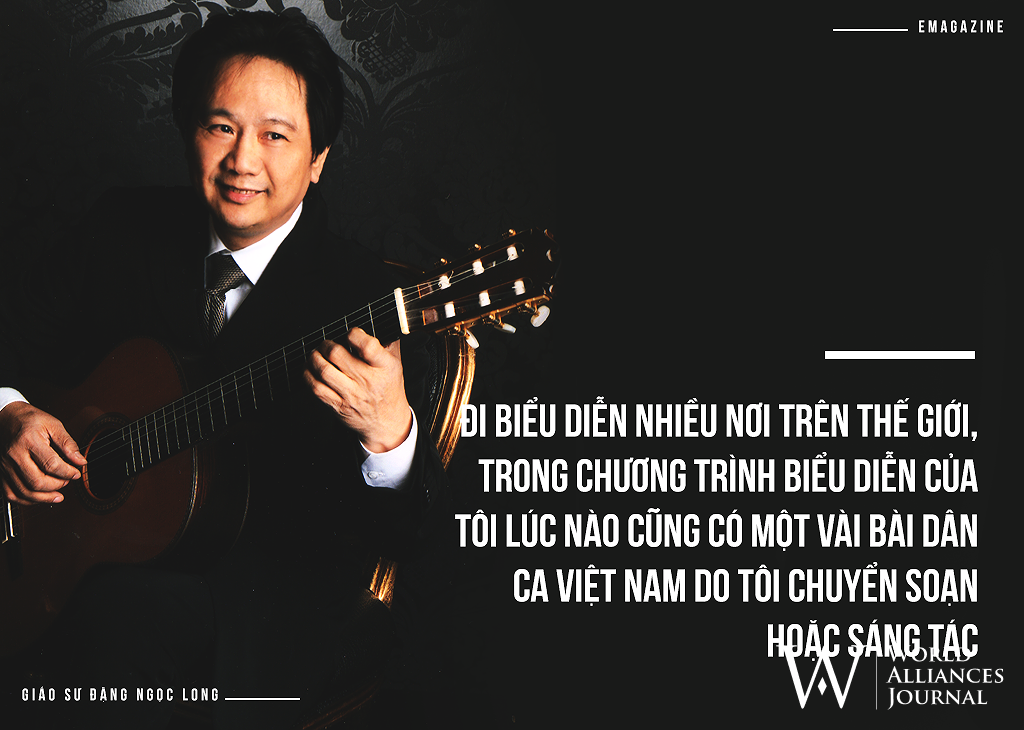
Could you share how you came to Germany?
Prof. Dang Ngoc Long: I was born in 1957 in Dien Hoa Commune, Dien Chau District, Nghe An Province, to a poor civil servant family. Because of my enormous love, I've been making instruments like the monochord and flutes since I was a child. My parents were art enthusiasts, so I followed in their footsteps. We couldn't afford musical instruments because of our financial situation, so I made them out of bamboo by drilling holes and making monochords out of tubes or by stretching bicycle brake wires. I was accepted into the Hanoi Conservatory's Guitar Department in 1975. There, I had the good fortune to learn under Mr. Ta Tan, the most famous musician in the North at the time. I was assigned to teach in the Central Highlands for roughly three years after finishing. Later, in Hanoi, I worked as a lecturer. I was sent to Germany to study abroad in 1985.
In Germany, I had the good fortune to study with a well-known professor in Berlin. I competed in an international competition in Hungary after two years (1987). International tournaments were incredibly difficult at the time. It was not like competition today because of the socialist system and the controlled economy. Before entering national tournaments, participants had to be chosen from their schools. Obtaining a visa, in particular, was difficult, so I jumped at the chance to travel. Winning the honour was a dream come true for me. It was a watershed moment, and from then on, I dedicated myself ceaselessly, falling passionately in love with the guitar.
Do you remember the first song that you loved?
Prof. Dang Ngoc Long: Oh, I used to listen to the song "The Song of Hope" (Bài ca hi vọng) by musician Hai Thoai on the radio a lot when I was little. Fortunately, when I started music school, I was able to study with my idol, and I performed this piece wherever I went. "As pairs of birds fly away..." These moments intrigued me because they were so skilled and rapid while still maintaining the bass rhythm. I tried everything in my power to get into the guitar department. At the time, I was just 12 years old. I stuck with the piece until I was 18 and enrolled in music school. After hearing it several times, I realised how gripping its sound was.
While working in the professional music environment in Germany specifically and internationally in general, what advantages and challenges did you encounter?
Prof. Dang Ngoc Long: The benefit was meeting highly accomplished colleagues and teachers who are profoundly knowledgeable about music. Because I'm inquisitive and enjoy learning new things, they valued my recommendations, creativity, and blending approaches. I conduct extensive research. I frequently look to the artists and geniuses that came before me for inspiration; they created numerous timeless works. For instance, when I was writing a tune inspired by the Central Highlands, I listened to some pieces by a well-known Cuban musician. He merged his country's music with music from the Central Highlands. Why not use our country's most distinct influences, I reasoned? As a result, I did it first and made it public.
The challenge is accepting and recognising a new style. It takes time for people to accept and value it. Talented musicians are objective. Even though I explained it that way, my colleagues gradually absorbed, became accustomed to, and then recognised the worth of my performances as time passed.
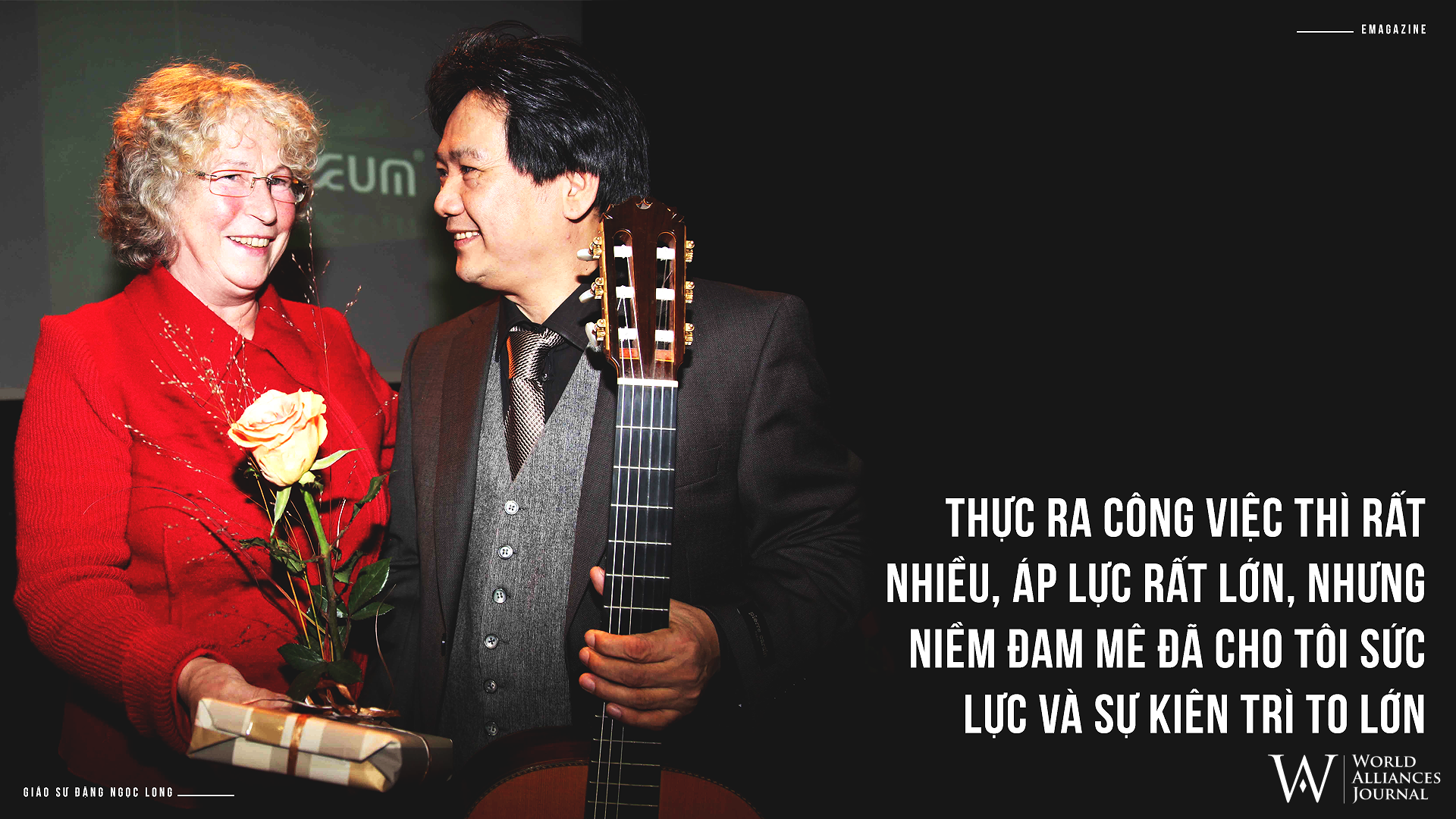
Prof. Dang Ngoc Long Collaborates with Foreign Classical Guitarists to Bring Vietnamese Folk Melodies Worldwide
Almost every musician wishes to establish his or her own school of thought. To do so, people frequently have to "explore their innermost selves to discover the essence of the world." We feel you've done the same, delving into the soul of traditional music and Central Highlands music to blend and produce new pieces that have won over colleagues and an international audience. For nearly 20 years, you and German educators have founded and managed the Berlin International Guitar Competition. Could you tell me more about the competition's mission?
Prof. Dang Ngoc Long: There are already hundreds of guitar tournaments around the world. The Berlin International Guitar Competition, on the other hand, requires compositions that combine Vietnamese and international music. Since then, whenever this tournament is mentioned, people instinctively link it with an Asian-European flair. That is our mission-not to follow any predetermined course. When people think of this tournament, they think of Asians, specifically Vietnamese. There is only one such event in the world. The media paid close attention to us as we created our style, and we eventually found our place. As you stated, it is our aim to popularise Vietnamese music throughout the world.
To summarise, contestants in this competition must practice compulsory compositions that combine Asian and European influences. During training, teachers encourage students to perform in a variety of settings in order for them to become skilled and confident. These performances have gained popularity among the general audience. Winners, for example, performed their works at a variety of locations around the world after returning home.
Do you have any plans for future music projects?
Prof. Dang Ngoc Long: The Berlin International Guitar Competition will be celebrating its 20th anniversary next year. I'm hoping for something special: to hold it in Hanoi, with an audience watching and Vietnamese contenders competing alongside international participants visiting Vietnam. This strategy excites me. I feel it will be well received. My inspiration came from a Danish contender in 2014 who sang "Lullaby." It left an indelible impression on me and many others. If we close our eyes and listen, it sounds like a Vietnamese person is performing, not a Danish one. We were thrilled to hear someone speak Vietnamese so fluently. This participant, as well as many others, should perform this work in our country.
May I ask if a musician wants to authentically play a piece from a particular country? Do they need to immerse themselves in that country's culture?
Prof. Dang Ngoc Long: That's right. They must comprehend its origins. For example, in "Lullaby," every country has lullabies, but if a musician wants the essence of the Vietnamese lullaby to reach Denmark, the lyrics must genuinely resonate with and affect them.
Any unforgettable performances in your life?
Prof. Dang Ngoc Long: The most stunning performance I've ever seen was in Prague, where the Vietnamese Embassy welcomed diplomats from around the world to celebrate the 70th anniversary of Czech-Vietnamese relations. The audience was made up of diplomats. After listening to my Vietnamese folk tunes, a Japanese individual came to me and said, "Thank you for performing a piece similar to a Japanese one; it made me feel like I was back home." Diplomats frequently travel far from home, so hearing music from their home nations moves them deeply. That made me really delighted and touched me deeply.
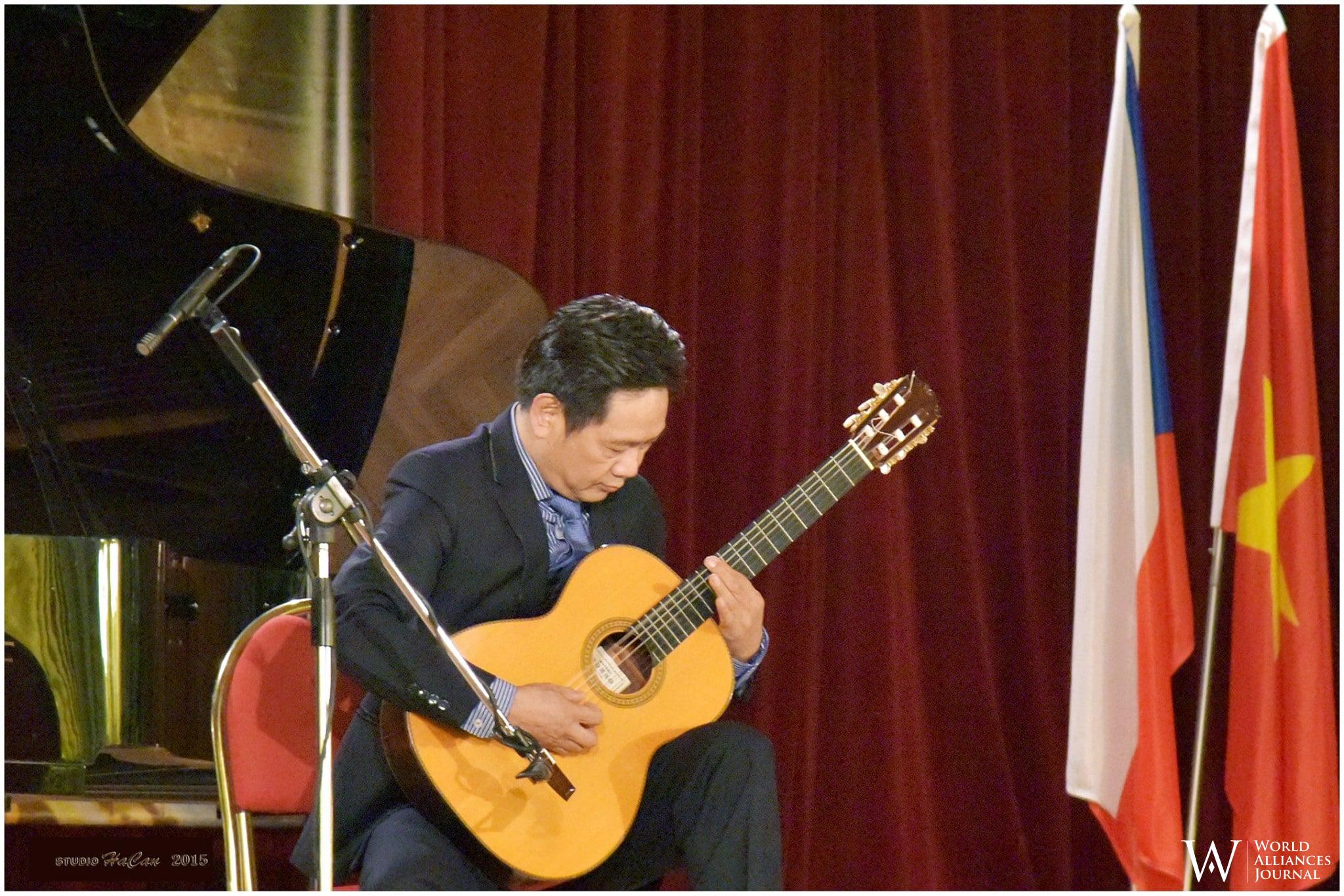
Aspiration to Spread Vietnamese Music Worldwide" (Photo: Archives)
What is your most memorable experience with the international audience?
Prof. Dang Ngoc Long: People frequently approach me after each performance to give their thoughts on Central Highlands music. They report being so close to my homeland, as if they're strolling in the Central Highlands, even if they don't know where it is. Many people have stated unequivocally that they will visit the Central Highlands, and many have visited and have written letters to me about it.
Apart from your musical activities, you are also known as a film actor?
Prof. Dang Ngoc Long: In my life, acting in films was an unexpected adventure. When my kid was younger, he was frequently cast in film roles, and I used to accompany him. Once, a filmmaker cast me in a fatherly part and later complimented me, saying, "You did well in the movie." So I kept acting (laughs). I have made an attempt to better comprehend this profession by taking a few film-related courses. "Vegetables, Fruits...", the TV movie in which I starred, won six prizes (Best Film in Europe, Public's Choice for Best Film, Judged by the Jury...). I had roughly 20 supporting roles and had a little role in the main tale.
With such a busy schedule, how do you balance your time between music and acting?
Prof. Dang Ngoc Long: I need to plan my time scientifically. For example, when I perform music, I completely abandon everything else. But when I'm not performing, I'm acting. I really enjoy watching films; they provide me with a lot of inspiration. After filming, I return to my teaching duties. Alternatively, anytime I am feeling down, I write music.
When we heard "The Song of Peace," which you composed as the musical theme for the international conference "The Mosaic of the King" during the ongoing war between Russia and Ukraine, we were tremendously affected. You and the intellectuals sent a message that inspired prayers for peace. How does music, in your opinion, contribute to global peace?
Prof. Dang Ngoc Long: I feel that music is humanity's voice. A philosopher once said, "When people can't express themselves in words, music resonates." Music is a universal language that draws people together. It moves people's hearts, causing them to treat one another more kindly and peacefully. As a result, music acts as a tool for people all over the world to better understand one another and live in greater peace.
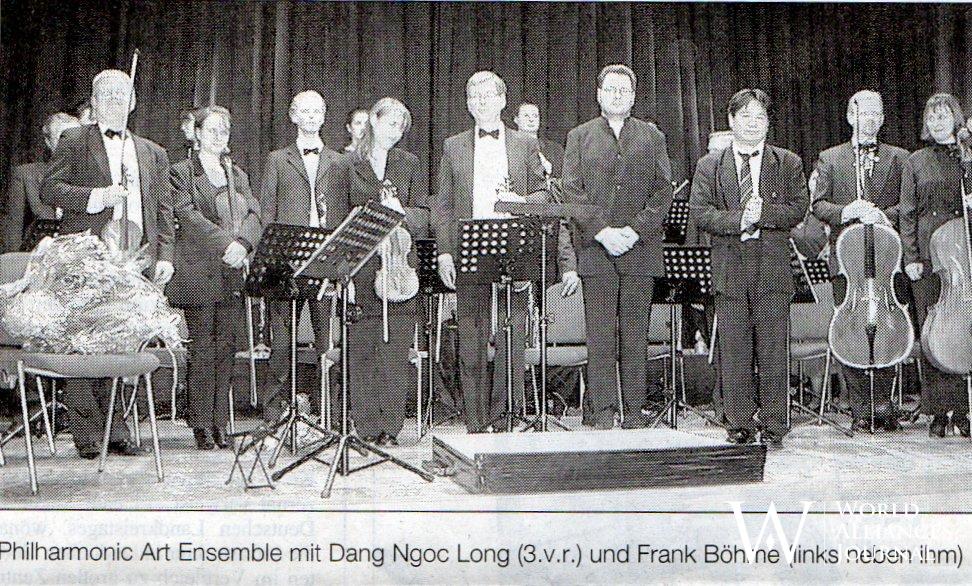
Prof. Dang Ngoc Long (third from the right) with international colleagues (Photo: Archives)
Is there something profound that you would like to convey to artists, especially young Vietnamese artists around the world?
Prof. Dang Ngoc Long: My lifetime ambition, from childhood to the present, has been to popularise Vietnamese music around the world. That is my life's work. I also wish to encourage future generations of Vietnamese guitarists and musicians to include Vietnamese artistic elements into their performances. They can write and orchestrate their own music, which allows Vietnamese music to resound globally and showcase Vietnam to a wider audience.
Thank you so much! I wish you good health, happiness, and serenity, and may you always be a source of pride for Vietnamese people around the world.
Berlin, 1/11/2022
PROMOTED
- Writer Nguyen Khac Phuc - show of a philosopher
- PROF. BUI MINH PHONG: “THE AFFECTION OF THE HUNGARIAN PEOPLE TOWARDS VIETNAM IS HIGHLY TREASURED”.
- Viet Nam Ancestral Global Day 2022 - Sacred Ancestral Commemoration Ceremony and Honoring the global Hung King's descendants
- HONOUR GLOBAL INTEGRATION BRANDS
- Young translator conquers the ancient Greek classic Anabasis – Memoir of the Persian Expedition
- Austria news - Usama Nosshy channel covers Asean's 55th anniversary celebrations at the United Nations in Vienna
- VietnamPlus Newspaper reported about ASEAN's 55th anniversary at the United Nations in Vienna
MOST VIEWED
-
1
Vienna Opens Windows of Truth: Sudan’s Cry for Justice Echoes Through a High-Level Humanitarian Briefing

-
2
WORLD TALK AND VIETNAM #1: MULTILATERAL INVESTMENT POTENTIAL

-
3
Isabelle Müller - Daughter of the Phoenix

-
4
General director nguyen the city: vov's core values will be traffected through the generations

-
5
OSCE’s role in bridging regional co-operation to tackle security implications of climate change at heart of high-level conference

The two Kings Philippe and Van der Bellen havedifferent backgrounds, one is of royal origin, and the other is a child of a refugee family (once of noble origin) but now, in the eyes of the European public, both of them are giving off a sense of courtesy, virtue and erudition.
WAJWith the attendance of many international figures, the 80th anniversary of the end of World War II was celebrated at the United Nations headquarters.
Journalist Usama Soliman



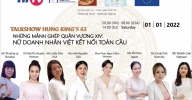
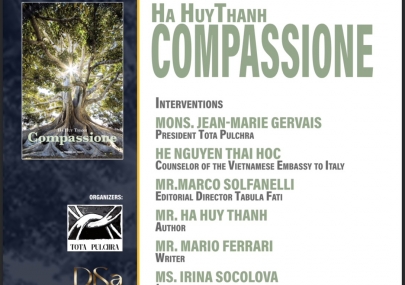
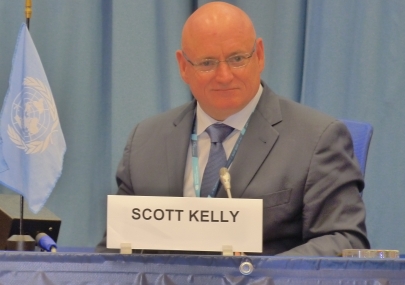
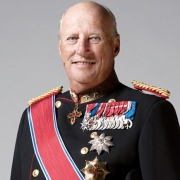
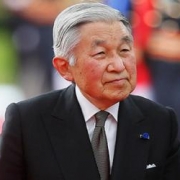
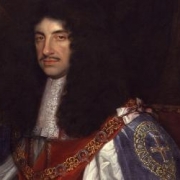
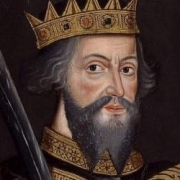



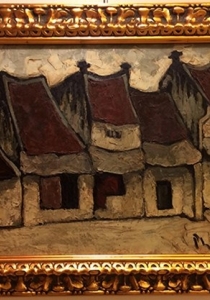
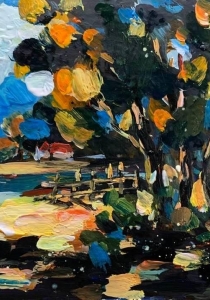
Comment